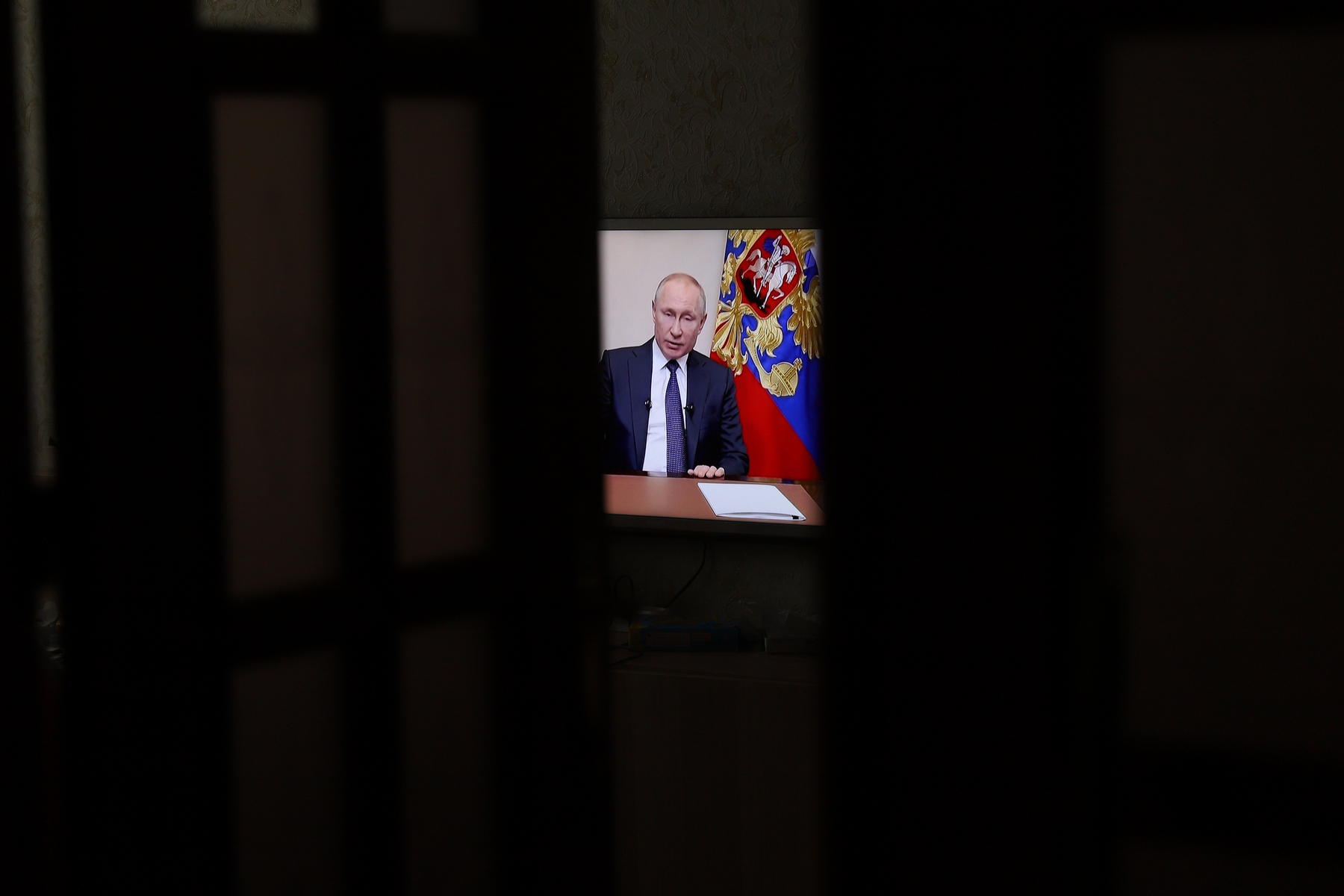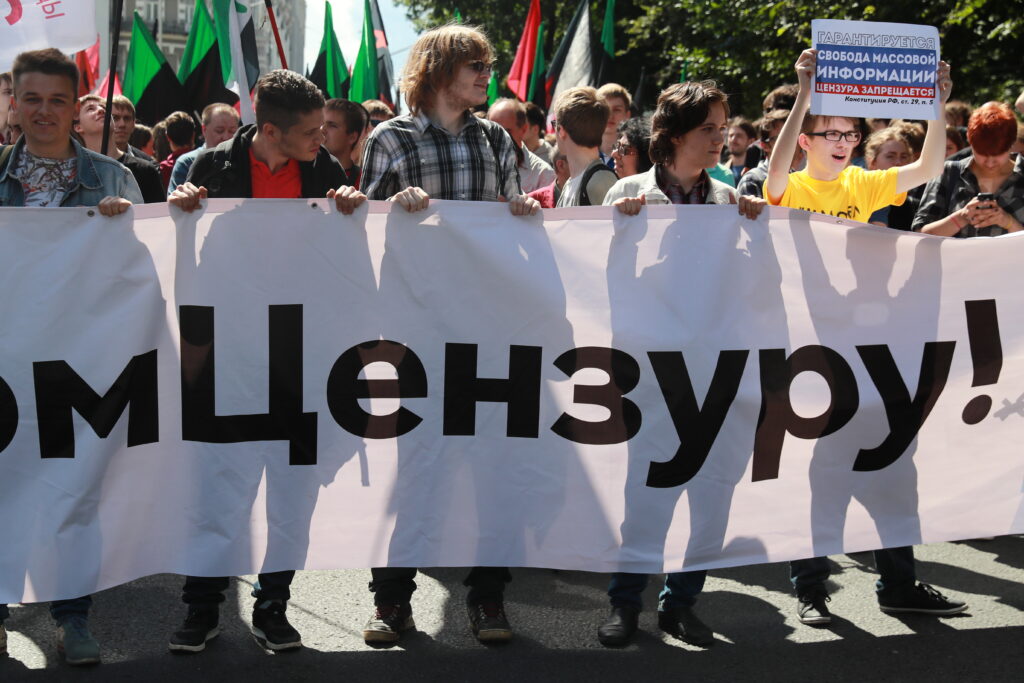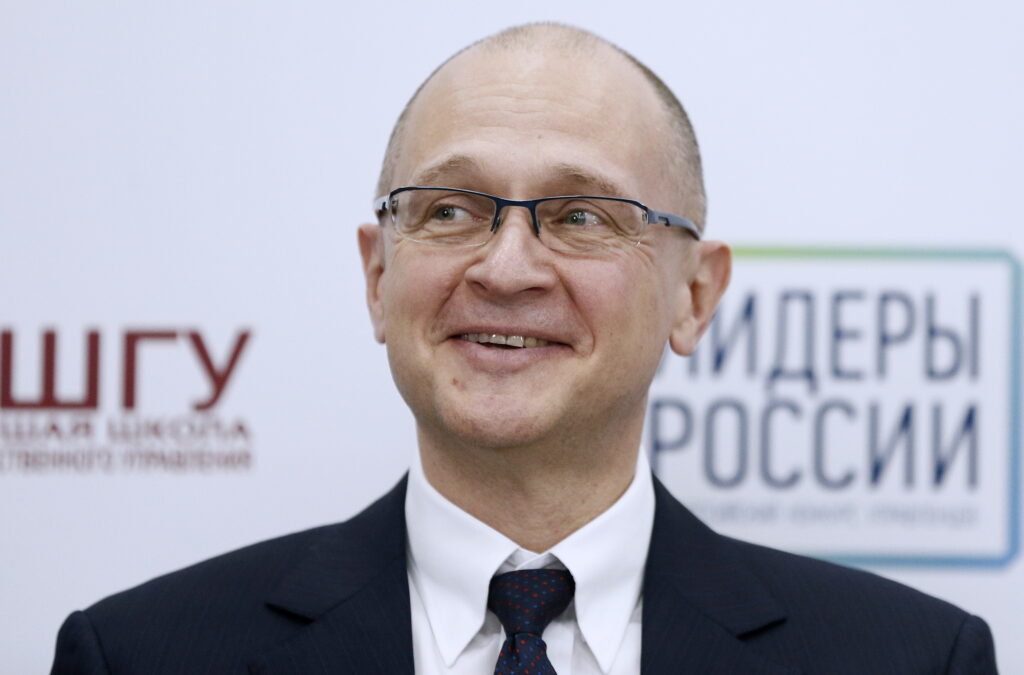In the light of recent political events, democracy in Russia is remembered less and less. The president himself practically does not utter this word completely anymore. However, the Constitution still proclaims Russia a democratic republic, and in six months we will have elections to the State Duma, albeit in a new «three-day» format. So in the leadup to polling day, it is worth taking stock of how far Putin’s views on democracy seem to have changed.
Putin’s rhetoric was not always so far from democratic ideas. In his early discourse (2000−2003), democracy was presented exclusively as an «indisputable fundamental value» and «the main goal and task of politics.» He addressed this topic in almost every speech. Back then, Putin understood democracy almost classically: an institution that establishes «the connection between the people and the government» and is provided by political parties through elections. He said that «without parties, neither the conduct of the policy of the majority, nor the defense of the positions of the minority are possible».
He used to wax lyrical about how democracy is a guarantee of human rights, civil society, and freedom. «Only a democratic state is capable of ensuring a balance of interests of the individual and society, combining private initiative with national goals,» he said in his 2000 Address. At the same time, freedom was interpreted, in contrast to the later period, mainly as individual freedom, freedom of speech, thought, movement, etc.
At the same time, there were also peculiarities in his understanding of democracy even then. The president closely associated a «democratic state» with the concept of a «strong state». Often, both of these formulations were used in one row, as complementary. For example, the following fragment: «But our position is extremely clear: only a strong, effective, if someone does not like the word „strong“, let’s say an effective state and a democratic state is able to protect civil, political, economic freedoms, can create conditions for a prosperous life of people and for the prosperity of our Motherland».
At the same time, it was emphasized that the idea of democracy does not contradict identity and patriotism. Thus, during Putin’s first presidential term, he interpreted democracy as a combination of the principles of people’s power with the rule of law (in Putin’s words, «a democratic state is paired with a rule of law, free elections and the priority of human rights» but in combination with the principles of Russian uniqueness and patriotism).
Democracy as a ‘fundamental principle’
During his second term as president, Putin continued to show respect for Western values and saw democracy as «a fundamental principle of politics», a «conquest of the people» and «value dictated by the will of the people». During this period he especially emphasized democratic dialogues, casting it as «a dialogue between the authorities and the people», «a responsible dialogue with society», «an open dialogue with people», «a dialogue between non-governmental organizations and the government.» At the same time, he placed focus on the representative form of democracy and its procedural nature.
The concept of democracy during this period continued its ties to civil society, human rights and freedom. However, deviations came gradually. Unlike the first term, the president espoused freedom not only and not so much as the freedom of a citizen, but mainly in the understanding of the independence and self-sufficiency of the nation. And it was represented, first of all, as an opportunity for an original, independent path of democratic development, without any interference or participation from the outside. It was not just democracy that began to come to the fore, but the original «sovereign democracy,» which belonged to Kremlin ideologues like Vladeslav Surkov. This transition actually marked a turn to electoral authoritarianism. The essence of this concept, in the words of Putin, was that «it [Russia] (…) will decide for itself how — taking into account its historical, geopolitical and other specifics — it is possible to ensure the implementation of the principles of freedom and democracy», albeit with a proviso — «observing all generally accepted democratic norms.»
The Bolotnaya effect
More significant changes in Putin’s concept of «democracy» took place after 2012, largely due to the protests on Bolotnaya Square and the wave of «color revolutions» across the post soviet space. These were described in Russian official discourse as an abuse of democratic freedoms and serious threats to the safety of Russian citizens.
If in 2000−2007 democracy was presented in the presidential rhetoric exclusively as a positive phenomenon and the basis for the modernization of Russian society, then by 2012 this concept obviously began to be perceived as having a dual, ambiguous nature. Democracy remains in the foundations of the constitutional system of Russia, yet from the point of view of power, it offers threats to stability.
It is no coincidence that during the pre-election campaign Putin devoted a separate speech to his latest thinking on democracy, which even then in many respects echoed the principles voiced in the messages of the period 2004−2007. In his first message since taking the presidency in 2012, Putin more clearly articulates the renewed concept he voiced in his campaign speeches. It emphasizes the uniqueness of Russian democracy and the inadmissibility of pressure on it from outside, as well as patriotism and freedom of the nation. And individual freedoms and human rights are no longer seen as prerequisites for a democratic society (after 2014, they are completely removed from the presidential rhetoric).
At the same time, the very concept of «democracy» is changing and sounds completely different than before In 2012, democracy is unexpectedly defined by Putin as «compliance with and respect for laws, rules and regulations.» At the same time, if in previous years, representative democracy and elections were described by him as the main instrument of its implementation, then during this period the focus of attention shifts to the direct form of democracy: «we must pay greater attention to the development of direct democracy and self-rule, including the right of popular legislative initiative».
Within the framework of the «new concept,» the definition of democracy is narrowed. It is reduced to only the election procedure (excluding human rights, the rule of law and freedom of speech, assembly and other democratic freedoms), or replaced by the concept of legality.
The disappearance of the D-word
Since 2018 Putin has stopped even mentioning democracy. In the address of 2013−2015 and 2018−2020 «democracy» was never mentioned. Although in 2000−2004 this word occurs in every presidential address at least nine times.
Instead of democracy, the president offers the country some kind of alternative, which can be described as the concept of «popular approval». If we analyze his speeches over the past few years, the meaning of this concept and its main difference from democracy is that some procedures, such as elections and the framework established by law, are irrelevant here. The only thing that matters is the approval or disapproval of the people. It is no coincidence that in his speeches, Putin is increasingly repeating that it is necessary to take into account the opinion of citizens and meet public opinion halfway.
Striking examples of the practice of «popular approval» are the popular vote to amend the Constitution and the proposal to «zero» Putin’s presidential terms. Addressing the Federal Assembly of the Russian Federation in 2020, Putin said that «amendments can be approved by Parliament in line with the existing procedure» but «opinion of people, our citizens as the bearers of sovereignty and the main source of power must be decisive.» And he repeated once again that «we will be able to build a strong, prosperous and modern Russia only on the basis of unconditional respect for the opinions of the people.» Back in the beginning of the 2000s, he associated a strong Russia with democracy, free elections and the observance of human rights.
If we take «popular approval» seriously as an alternative to democracy, then the question immediately arises: how then should popular opinion or approval be revealed if elections (representative form) fell into disgrace with the president?
Putin does not speak about this directly, but in 2016 he announced «taking a course on the development of direct democracy institutions», to which, judging by his speeches, he includes direct appeals of citizens (the «people asked» formula is now actively used by officials at all levels of government), legislative initiative online and, obviously, «popular vote» that was applied in relation to the Constitution and was in fact a public opinion poll.
What all these forms have in common is that none of them are legally binding. To put it simply, in accordance with the legislation, the authorities, of course, must react to them, but how and when — this society cannot influence. Last year, Ella Pamfilova, hair of the Central Election Commission of Russia told us that Putin might not have held a nationwide vote. And she was right. And according to the law, neither the president nor any other official is obliged to satisfy citizens’ appeals and legislative initiatives. All this remains solely at the discretion of their goodwill.
Obviously, under such circumstances, «popular approval» instead of democracy is becoming a simple euphemism for old Russian authoritarianism.









